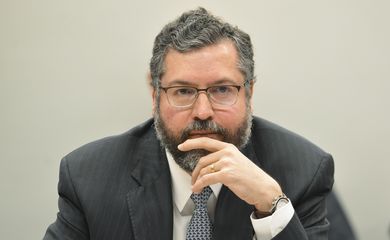Brazil chancellor: Changes at WTO should promote “equanimous game”


In a lecture to executives delivered on Monday (Apr. 8) at the Federation of Industries of the State of São Paulo (FIESP), Foreign Minister Ernesto Araújo said that Brazil is willing to work to bring about change in the World Trade Organization (WTO) and promote an “equanimous game.”

“We want to contribute decisively to the reform at the WTO in key areas,” the chancellor noted. There is a number of proposals, he said, aimed at enhancing the set of commercial disputes “especially in agriculture and conflict resolution. We want to be engaged in this process.”
Distortions
Rules must be established to bring more balance to international trade, the minister argued. “In the case of WTO, we have to attack distorting tools that undermine our economy, our competitiveness. Some of these tools are used by developed countries, others by developing countries, some by both, as is the case with agricultural subsidies, for instance,” he pointed out.
In March, during his visit to the US, President Jair Bolsonaro talked to US President Donald Trump about Brazil’s possible choice of foregoing its differential treatment granted to developing countries by the WTO, in exchange for support in Brazil’s efforts to join the Organization for Economic Cooperation and Development (OECD), comprised of the world’s most industrialized countries, and formed to outline joint standards for economic and legislative rules for its country members.
Brics summit
Araújo also argued that Brics, the bloc made up of Brazil, Russia, India, China, and South Africa, should take up a more specific stance. “Our conception […] aims to avoid having Brics act as a discussion forum on geopolitical topics, because a consensus is hard to be reached,” he said. “Brics should be more of a project incubator and less a discussion forum,” he went on to say.
For the third time, Brazil is hosting the Brics summit meeting on November 13 and 14, in Brasília, when leaders and chancellors from all five countries will attend the assembly. Chaired by Brazil, the meeting will focus on cooperation deals on science, technology, and innovation; incentives for digital economy; fighting transnational crimes; and funding for productive activities.




